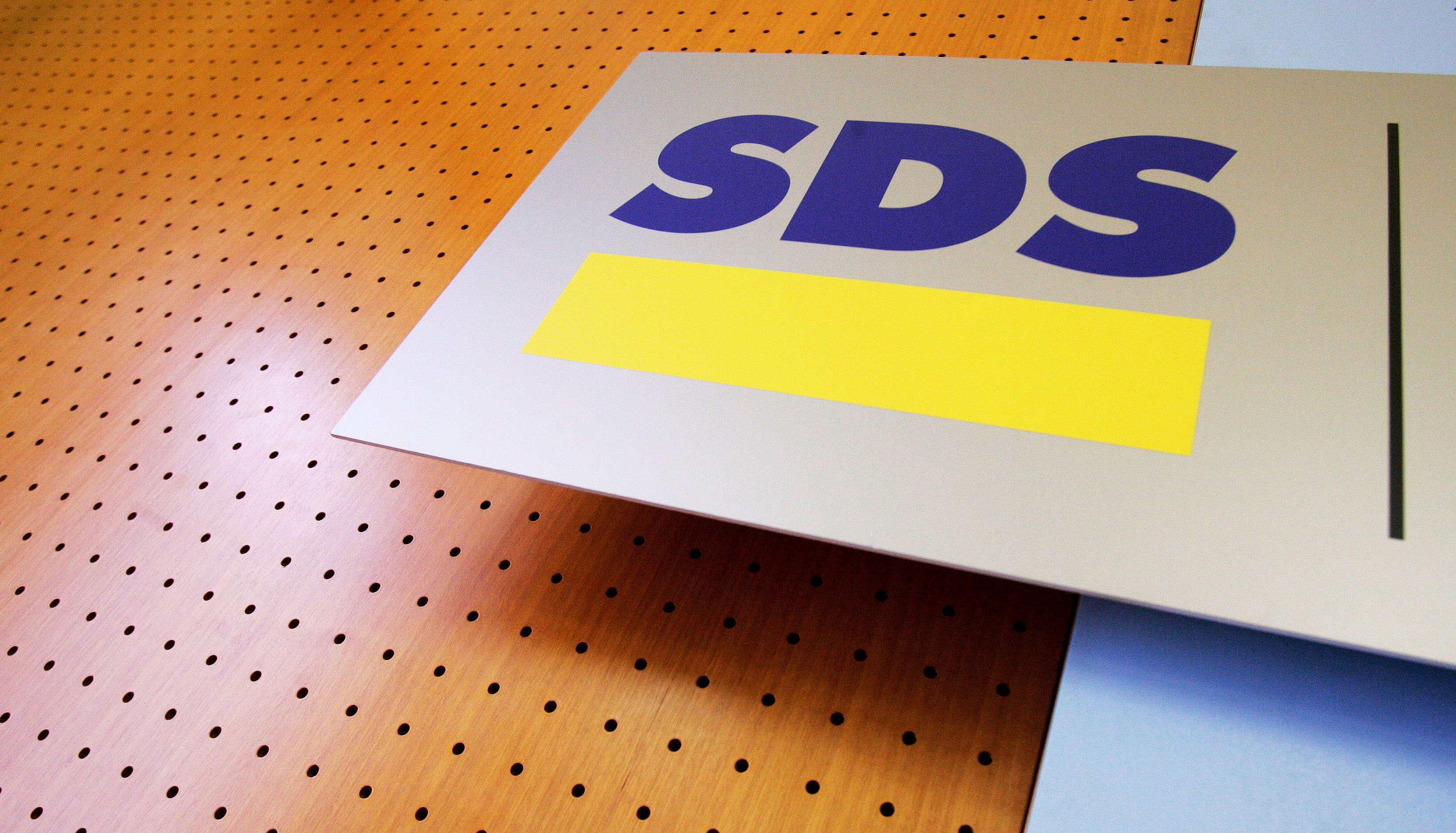SDS has the highest lead over second-in-line LMŠ, in the fourth consecutive weekly measurement. SD, DeSUS, N.Si, SMC, SNS, Pirati, and SLS + NSLS, which is the closest to getting in the parliament out of all the non-parliamentary parties, also did better than they did in the first measurement after Marjan Šarec’s resignation. After one month, poorer results were recorded for Levica, SAB, and, of course, LMŠ. Considering only those who are completely determined who they would vote for, the biggest leap is recorded for SMC, which has almost tripled its support since the fall of the government and has thus literally risen from the dead. The percentage for the Social Democrats has increased by a third, which is about the same as the increase of support for SDS, among those who are completely determined who they would vote for. The support for DeSUS has remained stable and above the electoral threshold for entering the parliament throughout the four-week measurements after the government’s resignation.
The Parsifal SC agency has conducted a public opinion poll on the support for different political parties and the participation in the possible early elections for Nova24TV on February 27th and 28th. The survey included 744 respondents. According to the results from the fourth consecutive weekly public opinion poll, in the recent period, SDS has recorded the highest lead over the runner-up LMŠ, so far. If the elections to the National Assembly were held this Sunday, the majority of the voters would support the SDS party (20.4 %), followed by LMŠ (13.2 %), SD (7.8%), NSi (5.5%), Levica (4.7%), and DeSUS (4.1%). 33.8 percent of the voters remain undecided.
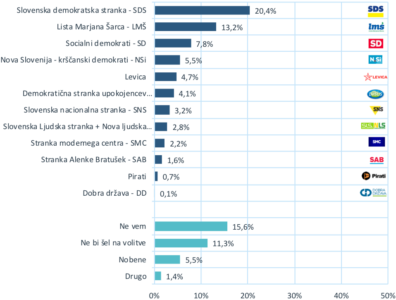
SD, DeSUS, N.Si, SMC, SNS, Pirati, and SLS + NSLS, which is the closest to getting in the parliament out of all the non-parliamentary parties, all did better than they did in the first measurement after Marjan Šarec‘s resignation. After one month, poorer results were recorded for Levica, SAB, and, of course, LMŠ.
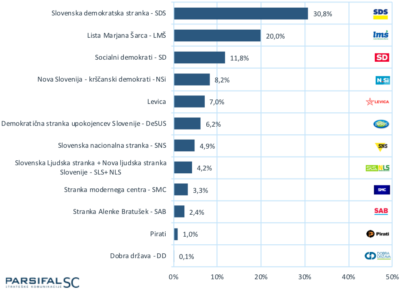
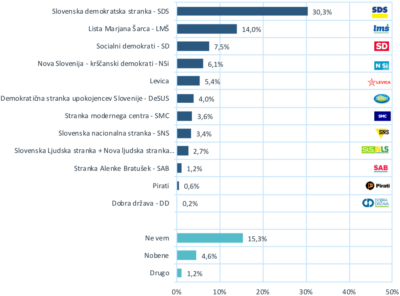
The support for SMC has tripled in the category of those who are sure to participate in the elections and are decided on the party they would choose
Considering only those who are sure to vote in the elections and know which party they would vote for, the biggest leap is recorded for SMC, which has practically tripled its support since the fall of the government and has thus literally risen from the dead.
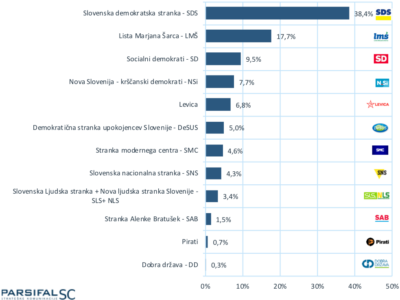
LMŠ still in a free-fall state
Monitoring of the support in the last four measurements shows a very noticeable increase in the difference between the first-ranked SDS and the second-ranked LMŠ, whose support keeps falling the most. Among those who are sure to participate in the elections, the difference between SDS and LMŠ is already over 16%.
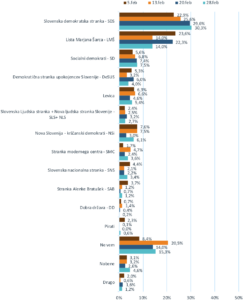
Among those who are sure to participate in the elections and already know who they will vote for, the difference between SDS and LMŠ is even more significant – as high as 20.7 percent.
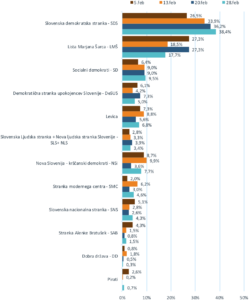
According to Parsifal’s public opinion poll, 44.5 percent of all respondents said that they would definitely participate in the next parliamentary elections. 14.9 percent said that they would definitely not participate in the elections. 18.2 percent chose the score of four on a five-score scale (one meaning the will definitely not participate in the elections, five meaning they will definitely participate in the elections), and 15.8 percent chose the score of three.
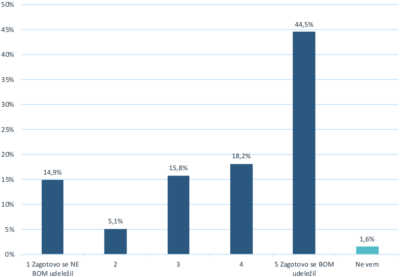
The respondents are not afraid of the impact of SMC and DeSUS’s involvement in the new coalition
The respondents were also asked about the involvement of the former coalition parties SMC and DeSUS in the new coalition, and its possible success. 41.5 percent say that the former coalition parties SMC and DeSUS will not affect the performance of the new government, 23.8 percent believe that their impact will be negative, and 20 percent believe that their impact will be positive.
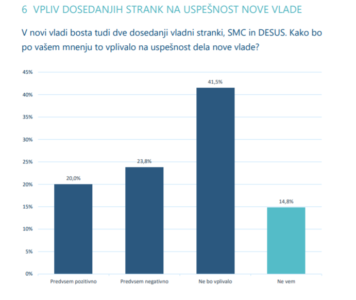
Rok Krajnc

